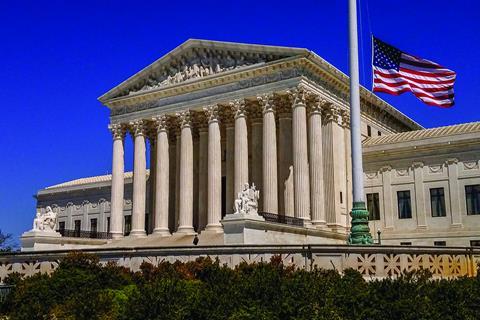Concerns about the enforcement of ethical standards on the bench of the US Supreme Court look set to escalate this week following the chief justice's refusal to testify before Congress.
Citing the separation of powers set out in the constitution, Chief Justice John Roberts told the Senate Judiciary Committee that he would 'respectfully decline' to testify at a Senate hearing. Instead he offered a statement signed by all nine Supreme Court justices in which they 'reaffirm and restate' the ethical principles and practices to which they abide.

The committee is examining allegations of unreported gifts, travel and property deals between Justice Clarence Thomas and a billionaire donor to the Republican Party. Thomas has served since 1991 when he was appointed by President George HW Bush.
While US Supreme Court justices are appointed by the president and confirmed by the Senate, it is a separate branch of government under article 3 of the constitution. However critics say the court's current governance lacks transparency.
Committee chair Senator Richard Durbin said the hearing would proceed regardless of Roberts' refusal. In a statement, he said: 'It is time for Congress to accept its responsibility to establish an enforceable code of ethics for the Supreme Court, the only agency of our government without it.'
While the debate appears to be following party political lines, the Washington Post reports today that 'it is difficult for the court to ignore the growing scrutiny of the justices that has intensified calls for an ethics code specific to them'.
Earlier this year, the American Bar Association passed a resolution urging the Supreme Court 'to adopt a code of judicial ethics binding on justices of the Supreme Court of the United States that is comparable to the Code of Conduct for United States Judges adopted by the Judicial Conference of the United States'.
This article is now closed for comment.



























2 Readers' comments